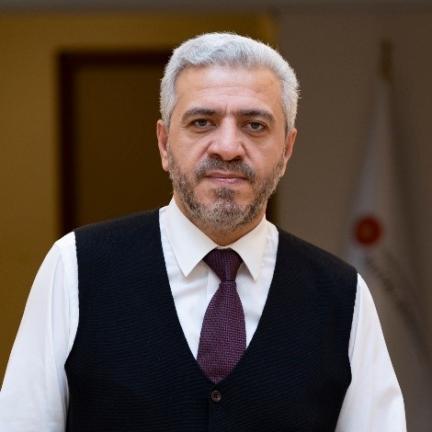The table below aims at gathering the administrative and governmental bodies of Türkiye, which are responsible for digital public administration policies and interoperability policies.
National
Presidential Decree No. 1 gave the Digital Transformation Office (DTO) of the Presidency of the Republic of Türkiye the responsibility of coordinating the digital transformation of the public sector. On 24 October 2019, following Presidential Decree No. 48, the eGovernment tasks performed by the Ministry of Transport and Infrastructure were assigned to the DTO. The Decree also introduced the position of Government Chief Digital Officer and assigned this role to the Head of the Digital Transformation Office. DTO coordinates all activities related to eGovernment, digital public administration, cybersecurity, critical infrastructures, big data and AI.

| Yusuf TANCAN Acting Head of the Digital Transformation Office (DTO) of the Presidency / Government Chief Digital Officer / Head of Cyber Security Department Contact details: Source: http://www.cbddo.gov.tr/ |
The Strategy and Budget Office (SBO), is responsible for preparing Türkiye’s high-level policy documents, namely the development plan, the annual program, the mid-term program and the financial plan, as well as sectoral plans and programs when it deems necessary. Therefore, digital government policies are designed and shaped at the highest level through these policy documents in coordination with relevant public institutions. Moreover, the Office allocates budgets to projects of central government institutions and prepares the President’s Public Investment Program, which is a compilation of investment projects.
The following tasks and responsibilities belongs to the Ministry of Industry and Technology:
- Determining strategies and policies for science, industry, technology and innovation.
- Determining suitable areas for organized industrial zone, industrial zone, technology development zone, free zone and industrial sites and to construct the infrastructures of these areas.
- Carrying out studies in order to develop policies for clustering initiatives in order to increase the competitiveness of enterprises, to provide grant support to clusters, to monitor and evaluate the results of implementation.
- Carrying out the necessary studies in order to prepare the metrology policy, to develop strategies in the field of metrology and ensure their implementation.
- Ensuring that investment incentives are regulated effectively at national and local level in the fields of macroeconomic, sectoral (social and economic) and regional development.
- Ensuring the coordination of development agencies.
Created in 2000 with the Electronic Communications Law No. 5809, the Information and Communication Technologies Authority (BTK) is the country’s telecommunications regulatory and inspection authority.
The following tasks and responsibilities have been delegated to the Ministry of Transport and Infrastructure as per Article 5 of Electronic Communication Law No. 5809:
- Determining strategies and policies for electronic communication services based on scarce resources such as numbering, internet domain names, satellite position, frequency allocation;
- Determining policies to ensure electronic communication infrastructure, network and services are established, developed and implemented in a complementary manner in accordance with technical, economic and social needs, public interest and national security purposes; and
- Taking the necessary measures and ensuring coordination to prevent electronic communication from being disrupted due to natural disasters and extraordinary situations.
The Scientific and Technological Research Council of Türkiye (TÜBİTAK) is the leading public agency for managing, funding and conducting research in Türkiye. The Council reports to the Ministry of Industry and Technology. It is also involved in a series of other actions related to eGovernment, such as providing guidance on the public internet sites standardisation.
TURKSAT builds, develops and operates Türkiye’s eGovernment Gateway, providing citizens, enterprises and government agencies with a single point of access to eGovernment services. The company also supports the digital transformation of public agencies during the integration of their services into the eGovernment Gateway by providing technical know-how.
The Personal Data Protection Authority (PDPA) is responsible for the observance of personal data protection legislation in all fields, including eGovernment-related systems and services. To enhance transparency and accountability in terms of personal data processing operations, the PDPA manages the Data Controllers Registry Information System (VERBIS) - similar to notification obligation mechanism of Directive 95/46/EC - where such information as the identity of the data controller, the purpose for which the personal data will be processed, the explanations relating to group(s) of persons subject to the data and the data categories of these persons etc. are kept and made publicly available. The Personal Data Protection Authority also operates the ALO 198 Data Protection Line Information Consultancy Centre established in order to provide information on the issues regulated in the Personal Data Protection Law and secondary legislation.
Municipalities set their eGovernment policies in compliance with the 2016–2019 National eGovernment Strategy and Action Plan, within the limits of their respective competences. The eServices of municipalities were integrated into the eGovernment Gateway in June 2012. As of the end of 2021, 383 municipalities of 81 provinces provide e-Government services through the Gateway.
Following the Presidential Annual Programme 2022, the Turkish government aims to review and simplify the practices of local administrations regarding investment permissions, to eliminate coercive practices and to expand the use of the eMunicipality application. Moreover, data exchange between local administrations and other public institutions will be ensured to increase the efficiency of the social assistance programmes.

